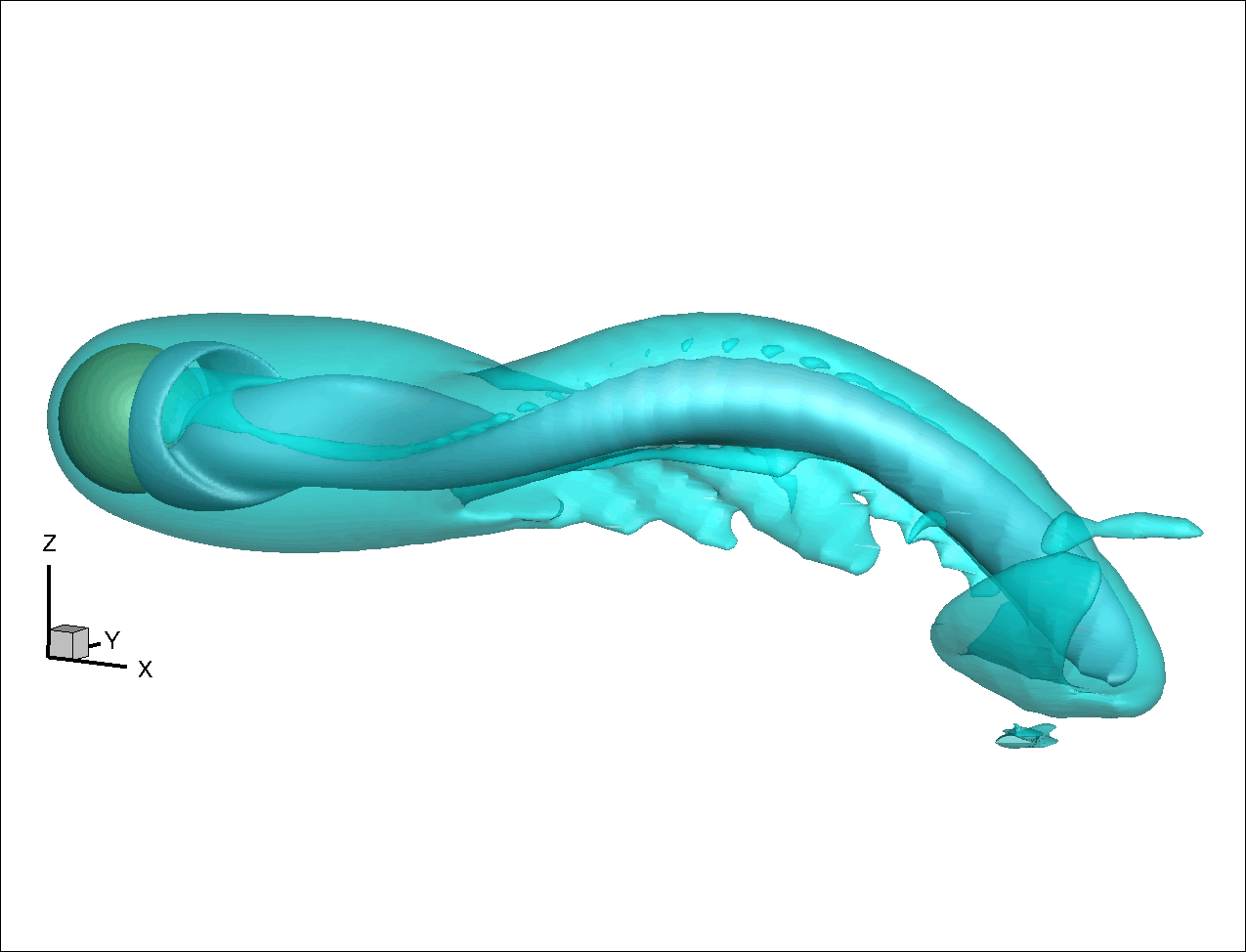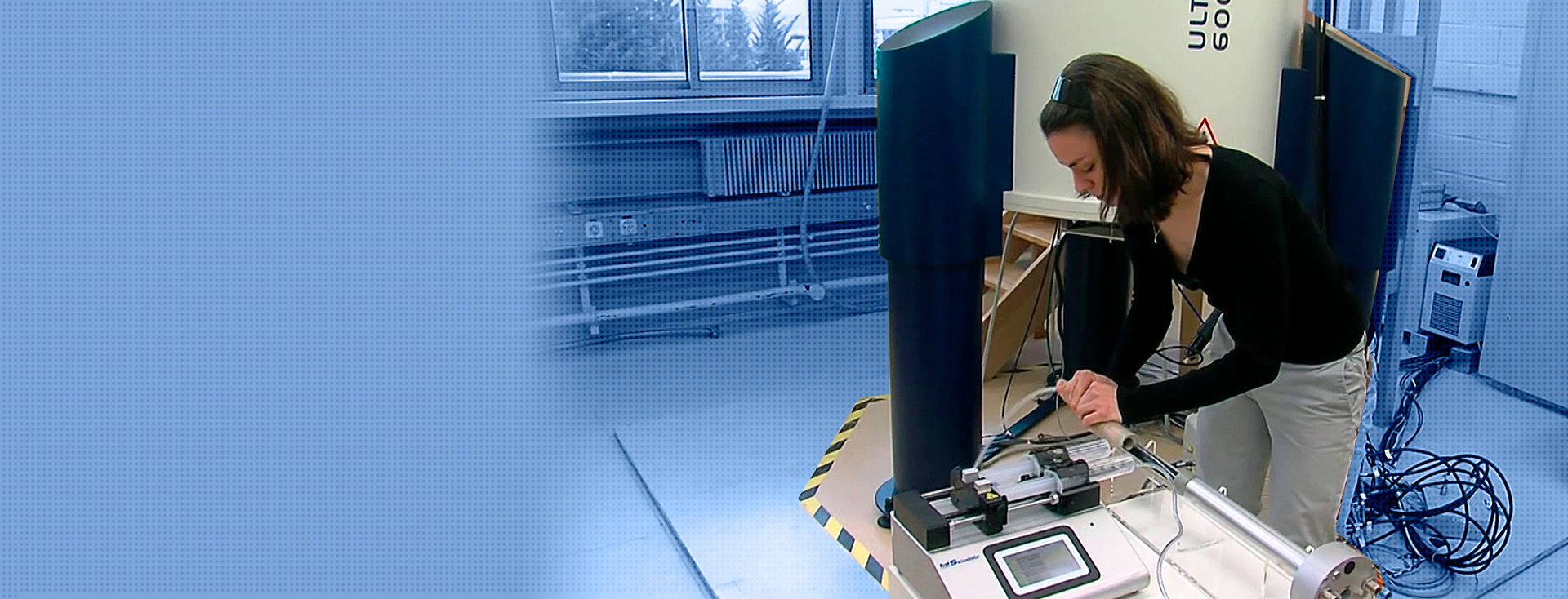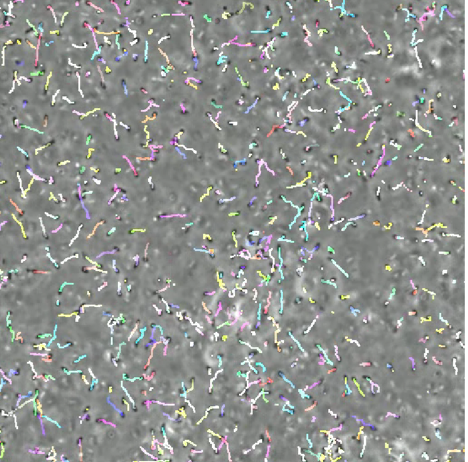 Figure : Space-time diagram of an iso-density particle-ladden gravity current in a stratified fluid.
Figure : Space-time diagram of an iso-density particle-ladden gravity current in a stratified fluid.
The scientific operation « Flow of powders and suspensions » studies the transport, mixing and storage properties of multiphase “fluid-particles” systems and biologic fluids (bacteria-viruses) in relationship with the rheological properties.
These systems, which are composed of a dispersed solid phase and a interstitial fluid, are widely found in the environmental and industrial worlds (food and pharmaceutical industry, civil engineering …). Our team combines experimental and numerical multiscale approaches for topics related to the characterization and the control of such complex fluid flows:
- Transport and mixing of powder/suspensions of particles : For dry, fluid-saturated (suspensions) or cohesive (powders) materials, this topic studies the link between the flow properties and the particle-scale organization.
- Microorganism transport : This topic concerns the study of biological particules (bacteria-viruses) in well-controlled hydrodynamic conditions, with the aim to characterize the parietal mass transfer due to convective diffusion.
- Numerical flow modelling : This topic concerns the numerical modelling of the flow of powders and suspensions, using a continuum modelling approach with rheological laws extracted from our experiments.
These topics are funded by national and international grants (European project PowderReg, ANR PRCI Pastflow, Ancre CNRS Erbag,…)

Activités
Equipments / plateforms
« PowderReg » Platform (Climatic chamber and demonstrator)
Diffusing wave spectroscopy platform (DWS, MS-DWS)
Vibrated and inclined plan for granular flows
Vibrating Silo
Powder Rheometer with a vibrating cell
« Lock-exchange » Platform to study gravity currents
Optical methods : micro-PIV, numerical holography.
Inverted microscope: epifluorescence and phase contrast.
Couette / Poiseuille reactor.
CFD simulation code « LS-STAG » (Complex fluids in 3D, parallel implementation)
| Name | Position |
Olivier Botella | Associate professor Université de Lorraine |
Yoann Cheny | Associate professor Université de Lorraine |
Yvan Dossman | Associate professor Université de Lorraine |
Mathieu Jenny | Associate professor Université de Lorraine |
Nicolas Louvet | Associate professor Université de Lorraine |
Sébastien Kiesgen de Richter (responsable) | Associate professor Université de Lorraine |
Salah Skali-Lami | Associate professor Université de Lorraine |



